You’ve seen it happen. A hobby or fandom you once loved—built on merit, creativity, risk, and tradition—starts changing. Suddenly the focus isn’t on the game, the art, or the community. It’s on identity, feelings, and inclusion. Longtime members are pushed out, new activist voices rise, and everything starts to feel… off.
This isn’t evolution. It’s ideological infiltration. Specifically, it’s what happens when a space gets queered.
Queering doesn’t mean being welcoming or diverse. It means subverting norms, dismantling tradition, and rewriting culture through the lens of radical identity politics—especially those rooted in Queer Theory and Critical Social Justice.
This isn’t about coexistence. It’s about conquest.
Inclusion as Weapon: How Queerness Enters and Dismantles Culture
Inclusion and queerness operate as a symbiotic force. While inclusion is marketed as kindness and fairness, in practice it often serves as the mechanism—the delivery system—for queering a space. If queerness is the bullet, inclusion is the gun.
Once “inclusion” becomes the guiding value of a hobby, that hobby is expected to transform itself:
- Lore is rewritten to eliminate perceived harms.
- Language is re-engineered to conform to non-binary frameworks.
- Legacy ideas like good vs. evil or male vs. female are deconstructed.
Queer Theory on its own is niche and academic—but inclusion gives it mass appeal. Activists frame any resistance to these changes as bigotry, weaponizing people’s natural tolerance against them. What begins as an invitation ends as a mandate.
The result is not coexistence. The result is replacement.
The Hollowing Out: When the Founders Leave and Activists Take Over
A clear sign of queering is the gradual disappearance of the originals. The people who built the hobby, who lived and breathed it, begin to fade away. They don’t storm out. They slip away quietly.
They don’t feel welcome anymore. They no longer recognize what they helped build. And they’re tired of being told they’re the problem.
Meanwhile, the newcomers aren’t here to preserve. They’re here to reshape.
They volunteer for leadership roles. They rewrite codes of conduct. They reframe the narrative. And before long, they run the hobby they never loved—only wanted to control.
And just like that, another cultural institution dies from within.
Hobbies That Were Queered, Captured, and Hollowed Out
Case Study 1: Star Trek and the Slow Death of a Cultural Titan
Star Trek once stood for heroism, exploration, and the triumph of human excellence. It celebrated boldness, ingenuity, and the idea that mankind could rise above its flaws through courage and reason. But like so many beloved franchises, it became a ripe target for activists who saw its cultural prestige as something to hijack—and humiliate.
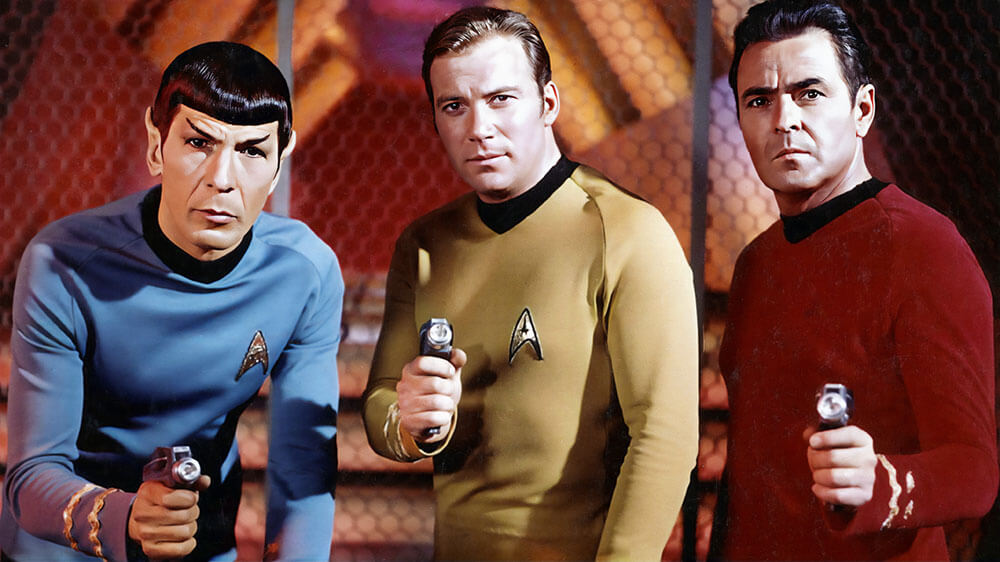
The ideological capture accelerated with Star Trek: Discovery, which didn’t just shift the storytelling—it queered the entire franchise. Starfleet’s proud spirit of exploration was replaced by endless emotional breakdowns and soap opera theatrics. The lead, Michael Burnham, wasn’t a character so much as a hollow “strong female lead” cliché—a DEI avatar who somehow knew better than every admiral, captain, and crewman around her.
The masculine edge that once defined Star Trek was systematically erased. The swashbuckling confidence of Captain Kirk gave way to Picard’s measured diplomacy—then collapsed entirely into the whimpering, self-doubting wrecks that pass for Starfleet officers today. Strength, decisiveness, even stoicism—all the traits that once made Star Trek aspirational—were pathologized and deconstructed.
Meanwhile, Discovery force-fed audiences a relentless parade of queerness.
Entire story arcs revolved around non-binary identities, same-sex romance, and tearful declarations of gender identity. Instead of using science fiction to explore universal human questions, Discovery used it as a stage for over-the-top gay kissing scenes and identity-obsessed melodrama.
Star Trek was no longer about humanity’s future—it was about validating niche activist narratives under the flimsiest possible sci-fi veneer.
Behind the scenes, the new writers were not inspired visionaries, but bitter ideologues. They despised Roddenberry’s original dream and used Star Trek as a platform to wage cultural war against the very virtues—courage, merit, unity—that had built the franchise’s global legacy. Wokeness wasn’t a fresh direction. It was a crutch—a way for third-rate talents to shield their incompetence from criticism by pre-emptively accusing the audience of bigotry.
Fans who pushed back were smeared as hateful relics. Their love for Star Trek’s rich lore and moral clarity was treated as something shameful—something to be corrected.
Star Trek wasn’t just modernized. It was queered, emasculated, and weaponized against its own fanbase. What once was a proud, imaginative frontier is now a joyless parade of slogans and identity rituals—relevant only to the activists who hijacked it and the cowards who let it happen.
Case Study 2: Dungeons & Dragons (Tabletop RPGs)
Once the crown jewel of male nerd culture, Dungeons & Dragons was a hobby built on imagination, danger, moral clarity, and male bonding. Rooted in medieval myth and heroic archetypes, it celebrated honor, strategy, and challenge.
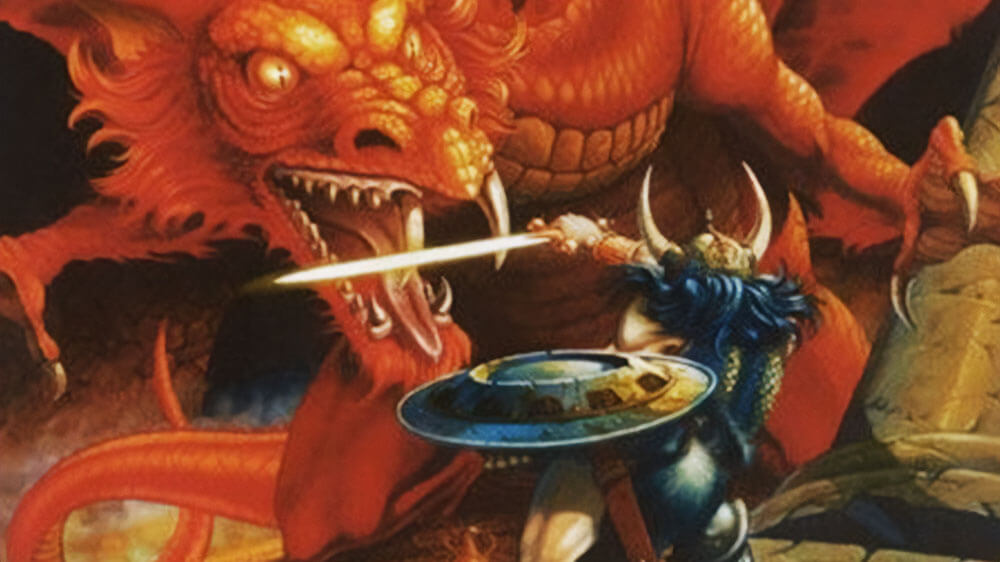
By the mid-2010s, the cracks began to show. Wizards of the Coast started using terms like inclusive, welcoming, and safe. They weren’t just being friendly—they were changing the rules of the game.
- The Player’s Handbook (2014) included statements about gender fluidity and encouraged players to redefine sex.
- Race was replaced with species, detaching characters from biological and cultural lore.
- Villainous races like orcs and drow were rewritten to avoid harmful stereotypes.
- Safety tools were introduced—mechanics that allow players to pause the game over emotional discomfort.
Soon after, longtime fans were labeled toxic for pushing back. The new fanbase didn’t love D&D for what it was—they came to queer it.
By 2024, D&D was no longer a world of heroes and dungeons. It was a sensitive, sanitized playground of identity expression.
And many of the original players? They quietly walked away.
Case Study 3: Gamergate and the Fall of Video Game Journalism
Before 2014, gaming journalism was flawed but familiar. Sites like IGN, Kotaku, and Polygon catered mostly to men—gamers who cared about gameplay, performance, challenge, and story. Reviews focused on mechanics, not identity. Developers and fans shared a common language.
Then came Gamergate—and the industry was never the same.
The controversy began over questions of journalistic ethics but quickly escalated into a cultural firestorm. A handful of activist journalists reframed it as a campaign of misogyny, erasing legitimate critiques and painting all dissent as hate.
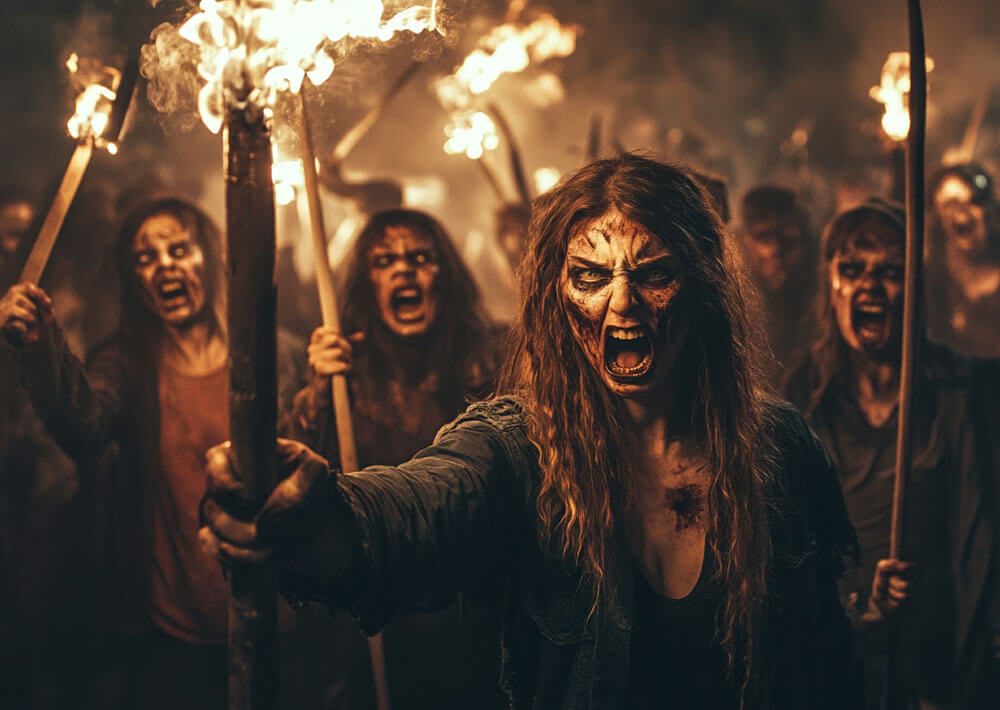
In the months that followed:
- Major sites closed comment sections, purged forums, and embraced progressive editorial slants.
- Reviews began focusing on representation, diversity, and harm.
- Games were praised or panned based on identity politics—not gameplay, innovation, or fun.
Gamers who pushed back were labeled sexist, racist, or alt-right. “Gamers are over,” declared Gamasutra. Kotaku and Polygon led the charge, becoming temples of ideological orthodoxy.
The result? A collapse in trust between media and audience. Gamers retreated to YouTube, Twitch, and independent platforms.
Game journalism still exists—but it’s a hollow shell of its former self. It wasn’t reformed. It was queered.
Cast Study 4: Sci-Fi and Fantasy Publishing (The Sad Puppies War)
For decades, science fiction and fantasy were merit-driven genres. Success came from imagination, worldbuilding, and bold ideas. Authors like Heinlein, Tolkien, Asimov, and Herbert built mythologies that shaped generations.
By the 2010s, publishing houses and award committees were overrun by ideologues posing as progressives.
The Hugo Awards, once the gold standard of sci-fi, became a battlefield. The “Sad Puppies” campaign, led by authors like Larry Correia and Brad Torgersen, tried to restore merit by nominating stories based on quality—not identity.

They were vilified.
- Activist factions accused them of bigotry and regressive politics.
- Stories with traditional themes were mocked or blacklisted.
- Winners became increasingly niche, ideological, and unreadable.
Critics celebrated queer utopias, nonbinary perspectives, and decolonized storytelling. The old rules of craft and myth were cast aside in favor of narrative activism.
Today, the Hugo Awards are culturally irrelevant. The readership fractured. And sci-fi publishing? Another castle lost.
Case Study 5: Marvel, DC, and the Collapse of Comics
Once an all-American mythology for boys and men, comic books told stories of heroism, sacrifice, and good vs. evil. Characters like Batman, Spider-Man, and Captain America symbolized strength, virtue, and masculine struggle.
But beginning in the 2010s, everything changed.
- Classic heroes were replaced by identity-swapped successors: female Thor, black Captain America, gay Superman.
- Storylines became vehicles for messaging, not myth.
- Editors began hiring based on lived experience, not talent.
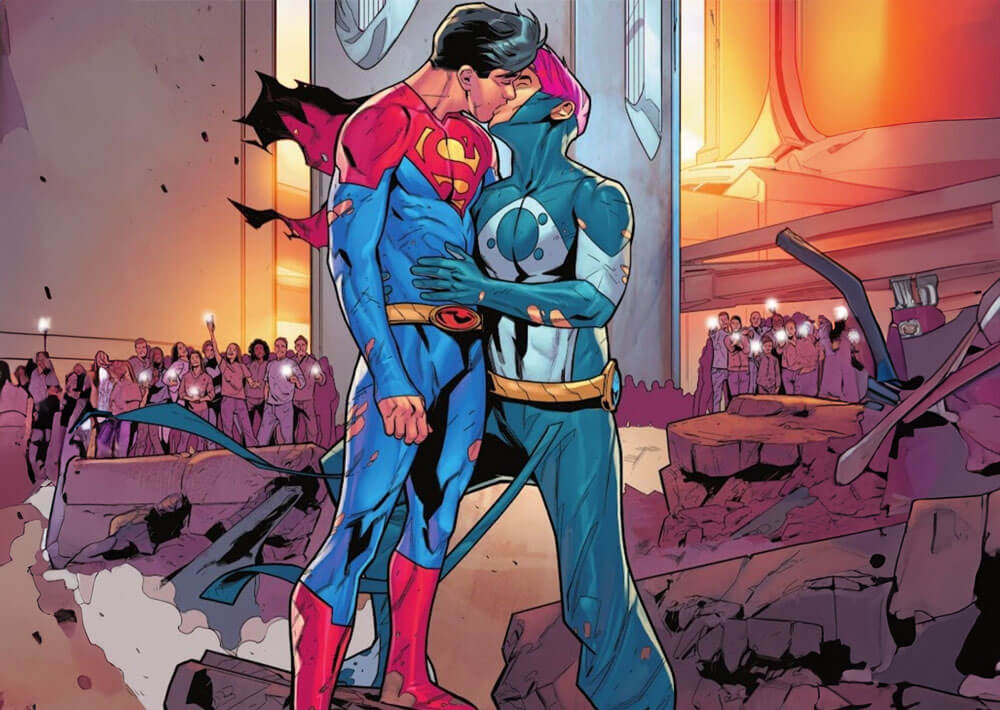
Activists infiltrated editorial boards and began using comics as a platform for social engineering. Writers openly talked about deconstructing masculinity, queering narratives, and decolonizing superhero tropes.
Meanwhile:
- Legacy fans were called bigots.
- Sales collapsed.
- Manga skyrocketed in popularity—because it still respects story, beauty, and excellence.
The comic industry wasn’t revitalized. It was gutted, politicized, and thrown into a shallow grave. All in the name of inclusion.
Case Study 6: Blizzard Entertainment and the Fall of World of Warcraft
World of Warcraft was once a cultural juggernaut—an MMORPG that embodied epic fantasy, challenge, and masculine camaraderie. It was a world where danger, heroism, and loyalty mattered. But beginning in 2014, Blizzard Entertainment began its descent from a merit-driven powerhouse into a DEI-infested husk, buckling under cultural and political pressure.
The collapse started when Blizzard CEO Mike Morhaime, rattled by feminist outrage over a lack of “diversity,” issued a public apology and promised sweeping reforms. Behind closed doors, Blizzard quietly implemented DEI hiring mandates, elevating identity politics over talent. Key creative visionaries were pushed out or left, gutting the old guard who had built WoW’s towering legacy.
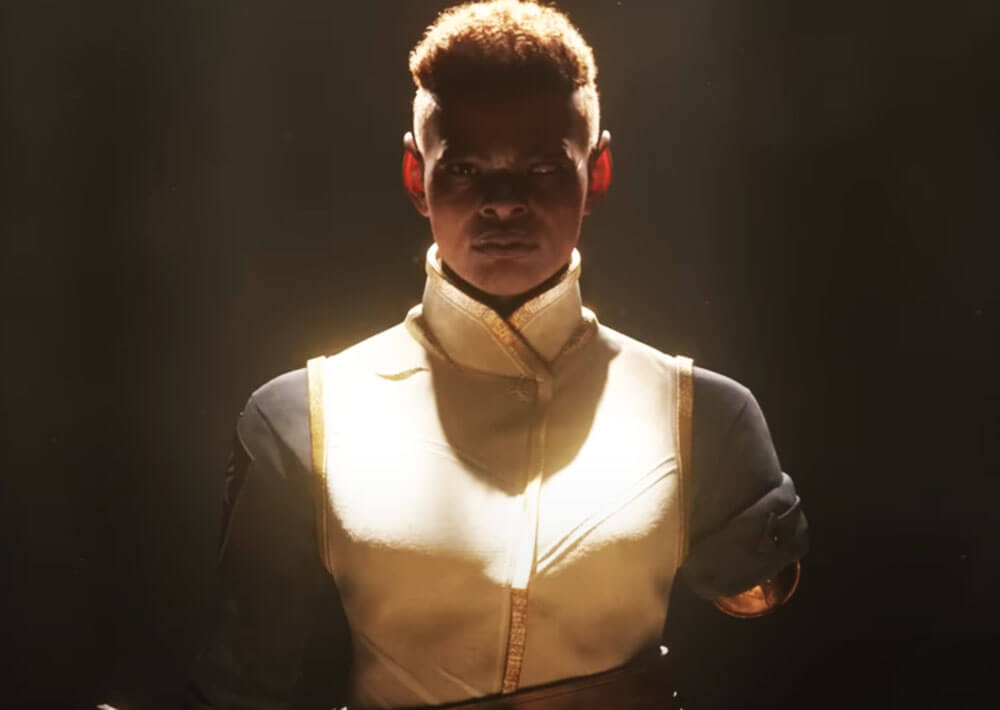
What followed was an ideological takeover. Blizzard hired race hustler Robin DiAngelo to run mandatory white privilege seminars, established an LGBTQ employee advisory board that now steers in-game content, and debuted an “Inclusion Nexus” at BlizzCon to celebrate grievance identities. Blizzard’s culture mutated. So did the game.
The infection spread fast:
- In 2020, WoW introduced Pelagos, its first openly transgender character.
- In 2021, they retroactively declared Chromie a transgender dragon.
- In 2022, they installed a Chief DEI Officer to enforce ideological purity in storytelling.
- In 2024, they rolled out a disabled black noblewoman who insists her missing arm is a virtue.
Meanwhile, Blizzard butchered classic content: removing flirtatious dialogue, renaming NPCs, and erasing male and female character options in favor of sterile “Body Types.” The high fantasy world of danger and honor was defiled—replaced with an ideological playground for activists who barely even play the game.
The rich lore of Warcraft was softened, rewritten, and sanitized into a bland, inoffensive slurry. Villains were neutered. Heroes became lectures in representation. Sexual identity replaced class fantasy. Players were no longer entertained—they were corrected.
The backlash was inevitable. Disgusted, millions of WoW’s original fans abandoned ship. Others turned to WoW Classic and private servers in rebellion, desperate to recover the spirit Blizzard was hell-bent on erasing.
Blizzard didn’t simply modernize WoW. They hijacked it, hollowed it out, and spit on the players who made it great.
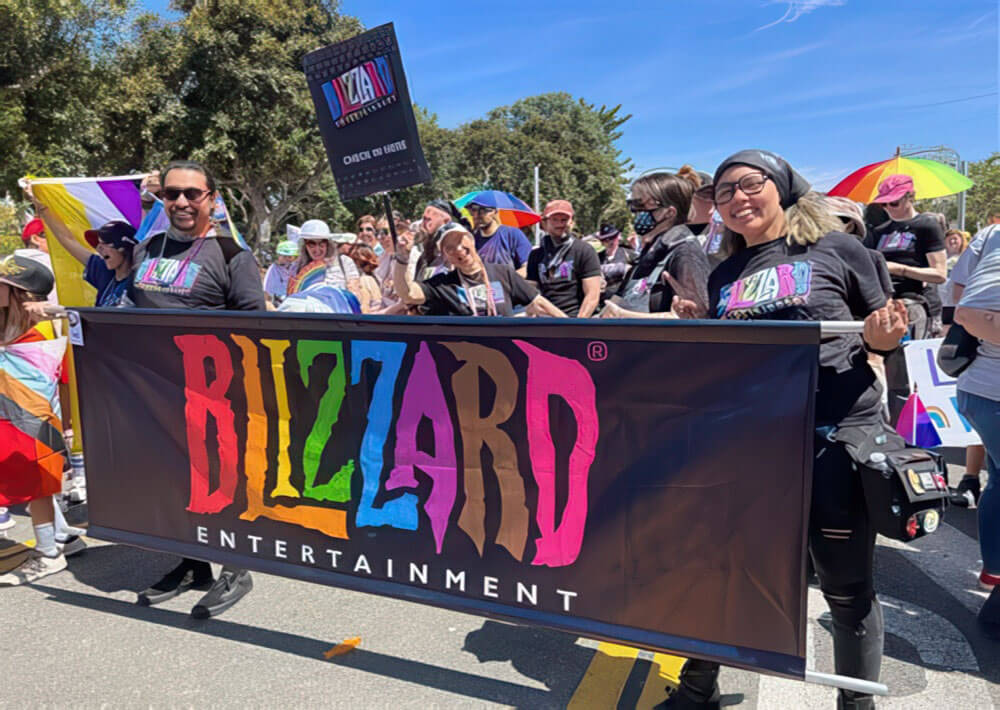
Today, the Progress Pride Flag waves proudly outside Blizzard’s Irvine headquarters—a monument to how thoroughly the studio was captured, converted, and castrated. World of Warcraft, once the undisputed king of MMORPGs, now drifts—sanitized, neutered, and soulless—pleasing no one and belonging to no one.
Checklist: Signs Your Hobby Is Being Queered
- Language Shift
- Sudden emphasis on being inclusive, welcoming, or representative.
- Traditional terms like race, sex, or gender are replaced with euphemisms like species, body type, or assigned at birth.
- Established vocabulary is rebranded as problematic, colonial, or harmful.
- Lore and Tradition Underminded
- Classic characters, histories, or archetypes are retconned to reflect political obsessions.
- Morally grounded villains or institutions are softened or reimagined.
- Core lore emphasizing difficulty, hierarchy, or realism is flattened to level the playing field.
- Identity Becomes Central
- Promotion and visibility are tied to sexual orientation, gender identity, or race.
- Pronouns, flags, and slogans dominate bios and announcements.
- Events and awards prioritize marginalized voices over skill or merit.
- Gatekeeping is Demonized
- Longtime fans and builders are labeled toxic or elitist.
- Criticism is framed as bigotry.
- Newcomers insist on changing the culture instead of adapting to it.
- Decline in Quality and Cohesion
- Standards drop to meet ideological quotas.
- Narratives and mechanics are rewritten for sensitivity, not excellence.
- Original fans begin disengaging as the community fractures.
Bonus Red Flag
Leaders start using phrases like decolonize the hobby.
Additional Indicators of Ideological Capture in Hobbies
- Leadership Overhaul:
- Sudden replacement of longstanding leaders with individuals promoting specific ideological agendas.
- New leadership prioritizes ideological conformity over traditional expertise or experience.
- Rewriting of History or Lore:
- Established narratives or histories are retroactively altered to align with current ideological perspectives.
- Foundational figures or events are reinterpreted or marginalized.
- Suppression of Dissent:
- Open discussions or differing viewpoints are discouraged or labeled as harmful.
- Members expressing traditional or alternative perspectives face social ostracism or penalties.
- Mandatory Ideological Training:
- Introduction of compulsory workshops, seminars, or struggle sessions focusing on specific ideological perspectives.
- Participation becomes a prerequisite for involvement or advancement within the hobby.
- Alteration of Core Practices:
- Fundamental aspects of the hobby are modified to fit ideological narratives.
- Traditional practices are abandoned or condemned without community consensus.
What you Must Do to Reclaim and Preserve Your Hobby
Once the queering process begins, your instinct may be to compromise. But make no mistake: Appeasement accelerates the takeover. It never stops it.
Even if the hobby has been compromised, it’s not necessarily too late. Cultural restoration begins with intentional action. Here’s how to fight back and reclaim what was lost:
- Establish a Clear Mission Statement
Define your community’s purpose, values, and cultural boundaries in writing. A hobby with a mission is harder to hijack. This statement should clarify what’s in bounds—and what isn’t. - Do Not Apologize
Never apologize for tradition, excellence, or clarity. Every apology becomes evidence of guilt. Apologies feed their justification for rewriting the rules. - Do Not Appease
Every concession becomes the new baseline for the next demand. They are not seeking harmony. They are seeking control. - Speak Plainly
Do not use the language of the interloper. Name the problem directly. Euphemisms are how ideologues disguise their intent. - Implement Purposeful Gatekeeping
Gatekeeping isn’t exclusion—it’s stewardship. Standards matter. They are worth defending. Never apologize for upholding the culture, spirit, and quality of your hobby. Vet new members, leaders, and collaborators. Don’t allow those with conflicting values to steer the ship. Your hobby’s culture is worth guarding. - Honor the Originals
Remember and celebrate the founders, traditions, and values that made your hobby great in the first place. Don’t let their work be erased or rewritten. - Enforce Consistency in Activities
Stay true to the mission. If your jazz club starts entertaining country music nights “just to be inclusive,” you’re already drifting. If your conservative moms’ group is pressured to host progressive causes, someone is trying to reprogram the group. Say no—early and clearly. - Regularly Review and Reaffirm Core Values
Periodically assess whether your group or hobby is staying aligned with its roots. If drift is occurring, correct it with clear communication and leadership. - Educate Members on O’Sullivan’s Law
British journalist John O’Sullivan once observed: “Any organization not explicitly right-wing sooner or later becomes left-wing.” Understand this law as a warning: neutrality isn’t protection. If you don’t define your values explicitly, someone else will do it for you. - Rebuild Elsewhere if Needed
If the hobby is too far gone, don’t waste time arguing with captured institutions. Build parallel spaces where the original spirit can thrive.
Conclusion: Preserving the Integrity of Your Hobby
Hobbies are refuges. They are places of shared passion, built through years of dedication and tradition. But today, they are also targets—prized not for what they are, but for how easily they can be re-engineered to serve someone else’s ideology.
One of the most dangerous vectors of this ideological takeover is queering.
Queering is not about inclusion or coexisting peacefully. It is about subversion. It seeks to dismantle, destabilize, and repurpose existing structures—using the language of tolerance and diversity as a Trojan Horse. It hijacks the goodwill extended to the LGBTQ community and exploits it to introduce a far more radical agenda.
Unlike gays and lesbians—who historically fought for civil rights, marriage equality, and social stability—Queer Theory opposes structure, normativity, and even same-sex marriage itself. It is, at its core, a rejection of any boundaries. And when it enters your hobby, it doesn’t want to join—it wants to transform.
That’s why gatekeeping matters. It’s not about cruelty. It’s about cultural preservation.
Every healthy community must know what it is—and what it is not. It must have boundaries. It must defend its history. It must protect its soul.
Because if you don’t, others will define it for you. And by the time you wake up, your hobby will be a husk of what it once was: hollow, compliant, ideologically captured.
Don’t let that happen.
If you love your hobby, protect it.
—Wolfshead



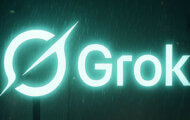


I totally missed this article over Easter!
Excellent case study, it shows the parallels between the cases. It starts small, usually with language, single words … and I still can barely believe what abominations become out of such often very unimportant and innocent seeming minor things can become!
I am expecting the third season of Strange New Worlds to become woke again, it is about time Mr Kurtzman destroys a Star Trek series again. This endless re-rebooting of Star Trek is really taking a dump on the legacy. I already noticed in the last season how they really tried hard to make Kirk likable but in the end portray him as someone who just does it wrong and has major character flaws that are really “problematic”. They did this neatly, they could not frontally attack a cultural icon, so the approach was subversive, but I noticed it.
Next season likely gloves off, just like Amazon Studios starts out woke and gets ever more woke till something is unbearable.
Marvel is indeed just like Tolkien described it. They cannot create, they can only corrupt and destroy.
I would love a new franchise to emerge that stays untouched by wokeness. HBO apparently cannot do it without at least some wokeness by now. Heck, Paramount and the now integrated Showtime subsidiary cannot get away without woke either. Just before “The Borgias” ended they had to turn an assassin character gay out of the blue.
Oh my, I said too many words that will trigger Akismet, sorry Akismet. 😉
Latest gem in the culture wars: Soulslike “Lords of the Fallen” subreddit had the game director banned from it, as him introducing male/female body types instead of 1/2 or A/B into the game was seen as regressive, fascist and whatsoever. A new subreddit starting with TheLordsoftheFallen was created and is gaining subscribers.
I am so sick of this destruction of beloved series, franchises, etc… and it is also terrible and telling how seemingly unable movie and game industry seem to have become in creating something new.
Tolkien was so right. And your suggestions are spot on. Do not back down, stand your ground and don’t take wokeness for granted. We have to fight this fight.